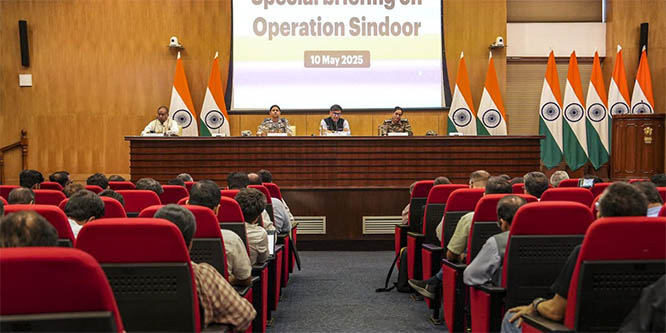
New Delhi, Mar 3: The government has lifted the time restriction on receiving Covid-19 vaccine jabs so as to increase the pace of immunisation, Union Health Minister Harsh Vardhan said on Wednesday.
People can now get vaccinated round-the-clock according to their convenience, he said in a tweet, adding that Prime Minister Narendra Modi values the health as well as the time of the citizens of the country.
"The government has lifted the time restriction to increase the speed of vaccination. People can now get vaccinated 24x7 according to their convenience. Prime Minister Narendra Modi understands the value of health as well as the time of citizens," Vardhan tweeted in Hindi.
Union Health Secretary Rajesh Bhushan told a press conference on Tuesday that the timeline of vaccinating the beneficiaries from 9 am to 5 pm has been done away with and it is up to the hospitals to decide whether they want to continue administering the vaccines even after that.
"Co-WIN 2.0 does not provide 9 am-5 pm vaccination sessions. It has done away with that timeline. If a hospital has the capacity, the system permits it to do vaccination even after 5 pm in consultation with the state government. This has been briefed both to the state governments as well as the private and government hospitals," he said.
The second dose of the vaccine against Covid-19 started being administered from February 13 for those who have completed 28 days since the receipt of the first dose. The vaccination of frontline workers (FLWs) started on February 2.
The next phase of the Covid-19 vaccination commenced from March 1 for people over 60 years of age and those aged 45 and above with specified co-morbid conditions.
More than 1.56 crore (1,56,20,749) vaccine doses were administered in the country through 3,12,188 sessions, according to a provisional report till Wednesday 7 am.
The beneficiaries include 67,42,187 healthcare workers (first dose), 27,13,144 healthcare workers (second dose), 55,70,230 front-line workers (first dose), 834 front-line workers (second dose), 71,896 beneficiaries aged more than 45 years with specific co-morbidities (first dose) and 5,22,458 beneficiaries aged above 60 years.








Comments
Add new comment